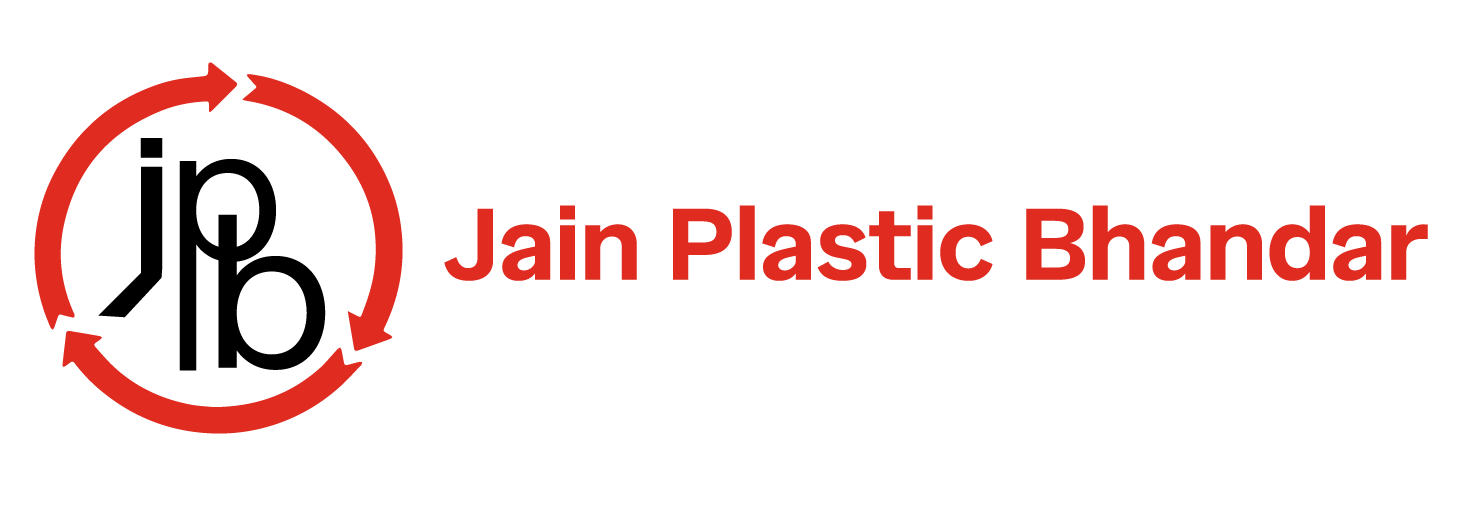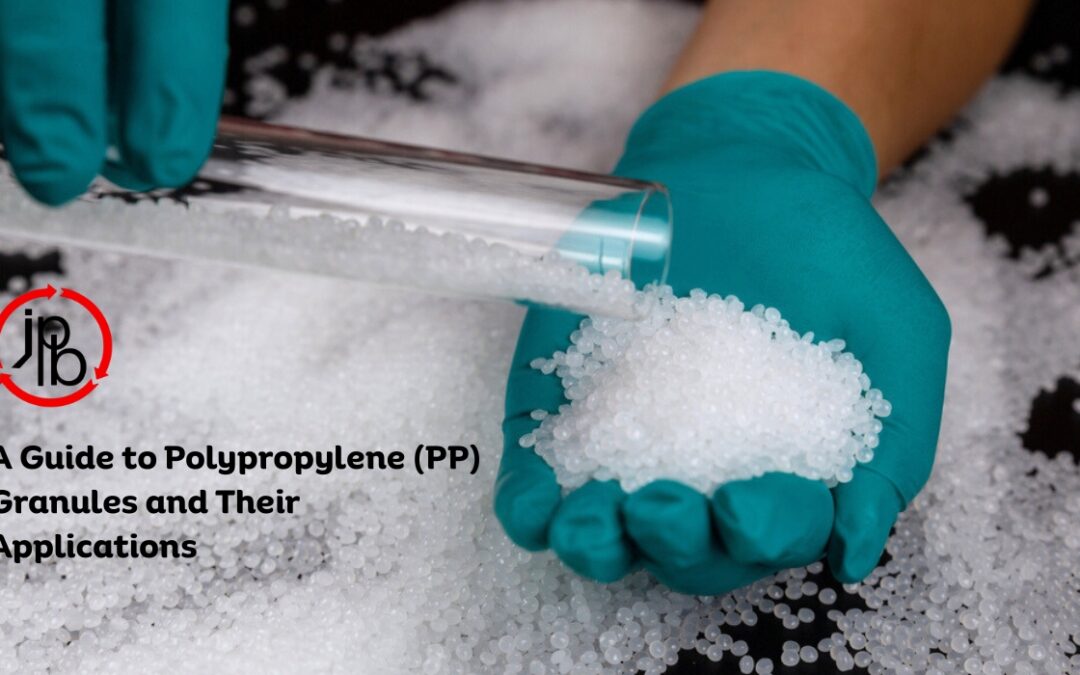Introduction to Polypropylene (PP) Granules
Polypropylene (PP) granules are one of the most versatile and widely used plastic raw materials in the modern world. As a thermoplastic polymer, PP is produced through the polymerization of propylene monomers, resulting in small, pellet-like granules that serve as the foundational building block for countless products. These granules are melted and molded into various shapes, making them indispensable across industries like packaging, automotive, textiles, and consumer goods.
In India, the demand for high-quality PP granules has surged due to rapid industrialization and urbanization. Companies like Jain Plastic Bhandar stand out as the best plastic raw material supplier in Delhi, offering premium-grade PP granules sourced from reliable manufacturers. With a commitment to quality and customer satisfaction, Jain Plastic Bhandar has established itself as the best polymer distributor in India, providing a wide range of polymers, including PP, to meet diverse industrial needs.
This comprehensive guide delves into the world of PP granules, exploring their properties, manufacturing processes, types, applications, and much more. Whether you’re a manufacturer seeking raw materials or a curious learner, this article will equip you with in-depth knowledge to make informed decisions.
The History and Development of Polypropylene
The story of polypropylene begins in the mid-20th century. In 1951, Italian chemist Giulio Natta and German chemist Karl Rehn independently discovered the polymerization of propylene using Ziegler-Natta catalysts, a breakthrough that earned Natta the Nobel Prize in Chemistry in 1963. This catalyst system allowed for the production of isotactic polypropylene, which has a highly ordered molecular structure, leading to improved strength and crystallinity.
Commercial production of PP started in 1957 by the Italian company Montecatini (now part of LyondellBasell). Initially used for fibers and films, PP quickly expanded into injection molding applications due to its low cost and excellent properties. By the 1970s, advancements in catalyst technology, such as metallocene catalysts, enabled the creation of more specialized PP grades with enhanced clarity, impact resistance, and processability.
In India, the polymer industry took off in the 1980s with the establishment of major petrochemical plants. Today, India is one of the largest producers and consumers of PP in Asia, with companies like Reliance Industries and Indian Oil Corporation leading the way. As the best plastic raw material supplier in Delhi, Jain Plastic Bhandar sources from these top producers, ensuring clients receive granules that meet international standards.
The evolution of PP has been driven by sustainability concerns. In recent years, bio-based PP derived from renewable sources like sugarcane has emerged, reducing reliance on fossil fuels. This shift aligns with global efforts to combat plastic pollution, making PP a forward-looking material.
Key Properties of Polypropylene Granules
Polypropylene granules boast a unique combination of physical, chemical, and mechanical properties that make them superior to many other plastics.
Physical Properties
- Density: PP has a low density of about 0.90-0.91 g/cm³, making it one of the lightest plastics. This contributes to weight reduction in end products, which is crucial in automotive and packaging sectors.
- Melting Point: With a melting point around 160-170°C, PP granules can withstand moderate temperatures without deforming, making them ideal for hot-fill applications like food containers.
- Transparency: Standard PP is semi-crystalline and translucent, but random copolymers can achieve high clarity for transparent packaging.
Mechanical Properties
- Tensile Strength: PP offers good tensile strength (20-40 MPa), allowing it to endure stretching without breaking.
- Impact Resistance: While homopolymer PP is brittle at low temperatures, impact copolymers enhance toughness, making them suitable for durable goods.
- Flexibility: PP’s flexibility enables it to be used in hinges and flexible packaging, where it can bend repeatedly without cracking.
Chemical Properties
- Resistance to Chemicals: PP is highly resistant to acids, bases, and solvents, making it perfect for chemical storage containers.
- Water Resistance: It absorbs negligible water (less than 0.01%), ensuring dimensional stability in humid environments.
- UV Stability: Untreated PP degrades under UV light, but additives like stabilizers can extend its outdoor lifespan.
These properties can be tailored through additives such as fillers (talc, calcium carbonate), colorants, and flame retardants. As the best polymer distributor in India, Jain Plastic Bhandar offers customized PP granules with specific additives to match client requirements.
Thermal and Electrical Properties
PP has excellent thermal insulation with a thermal conductivity of 0.1-0.22 W/m·K, and it’s a good electrical insulator with high dielectric strength. These make it suitable for electrical housings and thermal packaging.
The Manufacturing Process of PP Granules
The production of PP granules involves several steps, starting from propylene monomer extraction to pelletization.
Step 1: Monomer Production
Propylene is derived from petroleum refining or natural gas processing. In steam cracking, hydrocarbons are heated to produce ethylene and propylene.
Step 2: Polymerization
Using catalysts like Ziegler-Natta or metallocene, propylene monomers are polymerized in reactors under controlled temperature and pressure. This can be done via:
- Gas-Phase Process: Monomers react in a fluidized bed reactor.
- Slurry Process: Catalysts are suspended in a liquid hydrocarbon.
- Bulk Process: Polymerization occurs in liquid propylene.
The result is a powdery polymer.
Step 3: Additives Incorporation
The powder is mixed with stabilizers, antioxidants, and other additives in extruders to enhance properties.
Step 4: Pelletization
The molten polymer is extruded through dies and cut into granules, typically 2-5 mm in size. Underwater pelletizing ensures uniform shape.
Quality Control
Granules undergo testing for melt flow index (MFI), which measures viscosity and other parameters like ash content and molecular weight distribution.
In India, manufacturers adhere to ISO standards. Jain Plastic Bhandar, as the best plastic raw material supplier in Delhi, ensures all supplied PP granules pass rigorous quality checks.
Types of Polypropylene Granules
PP granules are classified based on molecular structure and composition.
Homopolymer PP
Composed solely of propylene units, it’s the most common type. Subtypes include:
- Isotactic PP: Highly crystalline, used for rigid applications like pipes and sheets.
- Atactic PP: Amorphous and rubbery, often used as a modifier.
- Syndiotactic PP: Offers better clarity and flexibility.
Homopolymer PP is cost-effective and has high stiffness.
Copolymer PP
Incorporates ethylene or other monomers:
- Random Copolymer: Ethylene is randomly distributed, improving clarity and impact strength. Ideal for food packaging and medical devices.
- Block Copolymer: Ethylene blocks provide superior impact resistance and are used in automotive bumpers.
- Impact Copolymer: A blend for high toughness at low temperatures.
Specialty Grades
- Filled PP: With talc or glass fibers for added strength.
- Flame-Retardant PP: For electronics and construction.
- Conductive PP: With carbon black for antistatic applications.
As the best polymer distributor in India, Jain Plastic Bhandar stocks all these types, helping clients select the optimal grade.
Applications of PP Granules Across Industries
PP granules find applications in nearly every sector due to their versatility.
Packaging Industry
PP is dominant in packaging, accounting for over 50% of its global use.
- Flexible Packaging: Films for food wrappers, bags, and labels. Biaxially oriented PP (BOPP) films offer high tensile strength and printability.
- Rigid Packaging: Bottles, containers, and caps for beverages, cosmetics, and pharmaceuticals. PP’s chemical resistance prevents contamination.
- Examples: Yogurt tubs, microwaveable trays, and blister packs.
In India, the packaging market is booming, and suppliers like Jain Plastic Bhandar provide granules for sustainable packaging solutions.
Automotive Sector
PP reduces vehicle weight, improving fuel efficiency.
- Interior Components: Dashboards, door panels, and seats use PP for its durability and aesthetics.
- Exterior Parts: Bumpers, fenders, and wheel covers benefit from impact copolymers.
- Under-the-Hood: Battery cases and fluid reservoirs leverage chemical resistance.
With India’s auto industry growing, demand for PP is high.
Textiles and Fibers
PP fibers are used in:
- Non-Woven Fabrics: For diapers, medical gowns, and geotextiles. Spunbond and meltblown processes create breathable materials.
- Carpets and Ropes: High strength and UV resistance make PP ideal for outdoor use.
- Apparel: In sportswear for moisture-wicking properties.
Consumer Goods
- Household Items: Buckets, toys, and furniture. PP’s moldability allows intricate designs.
- Appliances: Washing machine parts and refrigerator trays.
- Luggage: Lightweight and impact-resistant suitcases.
Medical and Healthcare
Sterilizable PP is used for syringes, vials, and labware. Its biocompatibility ensures safety.
Construction
PP pipes for plumbing, sheets for roofing, and fibers for concrete reinforcement enhance durability.
Agriculture
Mulch films, greenhouse covers, and irrigation pipes made from PP improve crop yields.
Electronics
PP insulators in cables and housings for devices.
The applications are endless, and as the best plastic raw material supplier in Delhi, Jain Plastic Bhandar supports these industries with timely supplies.
Advantages and Disadvantages of PP Granules
Advantages
- Cost-Effective: Low production cost compared to other plastics like PET or PVC.
- Lightweight: Reduces transportation costs and energy use.
- Recyclable: PP is easily recycled, with a recycling code of 5.
- Versatile: Customizable for specific needs.
- Non-Toxic: Safe for food contact.
Disadvantages
- Low UV Resistance: Requires stabilizers for outdoor use.
- Brittleness at Low Temperatures: Homopolymers can crack below 0°C.
- Flammability: Burns easily without retardants.
- Limited Heat Resistance: Softens above 100°C.
Despite these, advancements mitigate drawbacks.
Environmental Impact and Recycling of PP
PP’s environmental footprint is a hot topic. Derived from fossil fuels, its production emits CO₂, but it’s more efficient than alternatives.
Sustainability Efforts
- Bio-PP: Made from biomass, reducing carbon emissions by up to 80%.
- Recycled PP: Post-consumer recycling turns waste into new granules. In India, recycling rates are improving, with initiatives like Extended Producer Responsibility.
Recycling Process
- Collection and Sorting: PP waste is separated.
- Grinding and Washing: Into flakes.
- Extrusion: Melted into granules.
Challenges include contamination, but technologies like NIR sorting help.
Jain Plastic Bhandar promotes eco-friendly PP, offering recycled grades as the best polymer distributor in India.
How to Choose the Right PP Granules
Selecting PP involves considering:
- Application Requirements: MFI for processing (high for thin films, low for thick parts).
- Grade Type: Homopolymer for stiffness, copolymer for impact.
- Additives: Based on end-use (e.g., antistatic for electronics).
- Supplier Reliability: Opt for trusted sources like Jain Plastic Bhandar.
- Certifications: FDA for food, RoHS for electronics.
- Cost vs. Quality: Balance with performance.
Test samples for compatibility.
Future Trends in PP Granules
The future includes:
- Nanocomposites: Enhanced properties with nanoparticles.
- 3D Printing: PP filaments for additive manufacturing.
- Circular Economy: Increased recycling and bio-based production.
In India, government policies like the Plastic Waste Management Rules drive innovation.
Conclusion
Polypropylene granules are a cornerstone of modern manufacturing, offering unmatched versatility and performance. From packaging to automotive, their applications transform industries. As sustainability becomes paramount, PP evolves to meet eco-challenges.
For premium PP granules, look no further than Jain Plastic Bhandar, the best plastic raw material supplier in Delhi and the best polymer distributor in India. With a vast inventory, competitive pricing, and expert guidance, we ensure your projects succeed. Contact us today to elevate your production.

